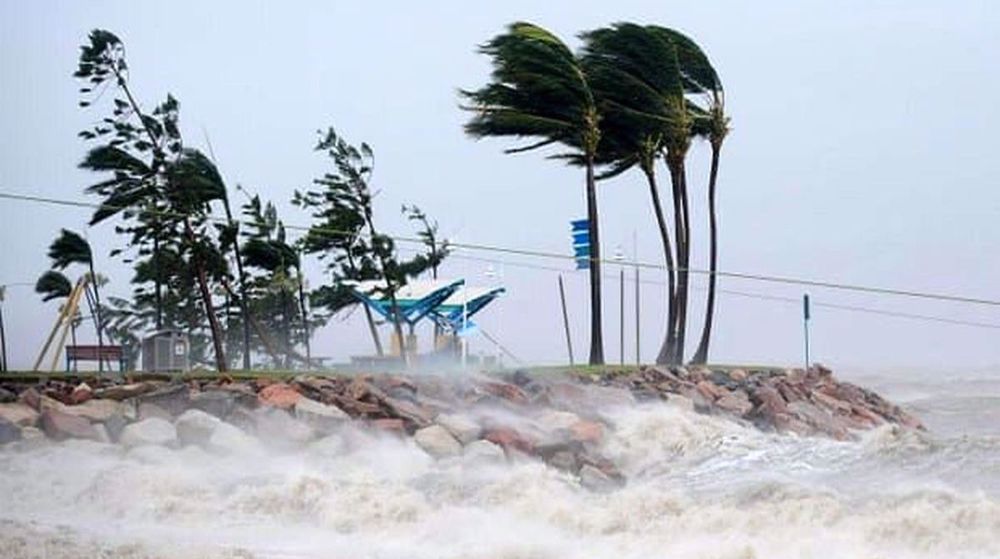Iran plans 3 million barrels of oil sale to private exporters
Iran plans to sell 3 million barrels of crude oil to private companies in the third round of sales aimed at bypassing US sanctions, Minster of Petroleum Bijan Zangeneh says.
“The license required has been procured from the three branches of power for three million barrels of oil to be sold on Iran’s energy bourse, 100 percent in rials,” Zangeneh said on Wednesday.
However, payment in foreign currencies is also possible for those who want to buy oil in non-rial currencies, he added.
“If a person wants to buy oil on the bourse in foreign currencies, oil will be provided in foreign exchange and if a person wants rial-based purchase, the supply will be carried out in rials.”

Iran began selling oil to private buyers on its energy exchange first in October when one million barrels were offered at $74.85 a barrel as the US prepared to reimpose sanctions on the country’s oil sector.
The second offer came after the sanctions were reinstated in November and 700,000 barrels of crude oil were sold to private companies for export.
According to the Ministry of Petroleum’s Shana news agency, three private companies paid $64.97 per barrel for two crude shipments of 245,000 barrels each and one shipment of 210,000 barrels.
“Oil buyers on the bourse have been able to export their 'black gold' and there has been no problem in this regard,” Zangeneh said on Wednesday.
In the first and second round of sales, buyers would pay 20 percent of the total value of their purchases in Iran’s national currency, with the remaining payments made in foreign currencies after loading.
Private companies can only buy crude oil for exports because the oil industry is a monopoly of the state after its nationalization in 1951.
Interestingly enough, the first sanctions on Iran’s oil sector were imposed the same year by the US and Britain which later staged a coup against Iran’s first democratically-elected government headed by Prime Minister Mohammad Mosaddeq.
The revolutionary movement put an end to four decades of Britain’s control and exploitation of Iran’s oil riches with almost nothing in return.
Sixty-eight years since that landmark event, Iran’s oil sector is facing similar sanctions from the United States which is demanding the Islamic Republic forgo its nuclear and missile capabilities.
The plan to sell oil to private companies on the energy exchange was floated in July with the aim of defeating America's efforts to stop Iran's oil exports.
US President Donald Trump has promised to bring Iran’s oil exports down to zero, but he had to budge on the pledge in early November when he exempted eight major customers of Iranian oil from the sanctions.
Reports have said the Iranian government intends to offer oil on the energy exchange once a week.
Government spokesman Mohammad Reza Nobakht said on Tuesday night that the state budget for the new Iranian year starting in March assumes $21 billion of oil revenues, down 28 percent from the current budget.
Earlier in the day, President Hassan Rouhani said 1,425 trillion rials (33 percent) of Iran's income will come from oil exports as he unveiled the budget of 4,700 trillion rials ($112 billion at the official exchange rate) for the new Iranian year.
Iran says its investments in Venezuela face no major risk
Make ‘right decision’ or face more US pressure, Rubio tells Venezuela’s Rodriguez
VIDEO | General Soleimani honored in Kashmir, Kargil
US, Israel waging ‘soft warfare’ to destabilize Iran after June defeat: Top general
VIDEO | Hundreds brave wind and cold to show solidarity with Gaza in Berlin
Israel kills more Palestinian civilians in Gaza amid ceasefire violations
VIDEO | Paris protest condemns US aggression against Venezuela
Pope Leo says Venezuela must remain an independent country











 This makes it easy to access the Press TV website
This makes it easy to access the Press TV website